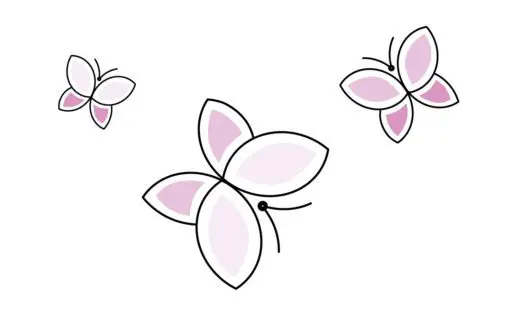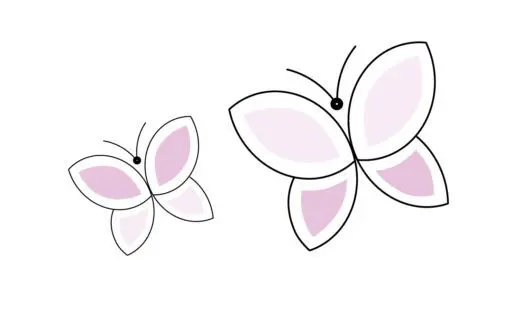Advance Care Planning and why it’s important for you and your child
Advance Care Planning can help you to explore your choices and feel more in control about the future. However, it's not right or possible for every family. Parents Sacha and Simon had very different experiences - they share their stories and how planning, and no planning, impacted their time.
What is Advance Care Planning?
Planning for their child’s death often helps parents feel more in control and reassured about what’s going to happen. The more plans you can put in place with your team in advance the better the chances of fulfilling your or your child’s wishes.
Health care professionals call this Advance Care Planning (ACP). They will do the planning with you to make sure your child’s wishes are recorded and shared with all relevant professionals. This means everyone involved in your child’s care will understand what they need to do to help you achieve that outcome. If you want your child to be at home at the end of their life for example, the plan can minimise the risk of emergency admission to hospital.
Whatever you or your child decides is not set in stone – the plan can always be changed. Your child’s ACP covers:
- Where your child will die
- Treatments you do or do not want for your child
- Organ donation
- Wishes
- Arrangements for after death including the funeral
How planning can be a consolation in grief – Sacha’s story
Sacha’s son David, who was known as DD, died in aged 16. Sacha shares her experience of how planning for DD’s death gave her consolation in her grief.
“Days before he died, the last lucid words my 16-year-old son David, or DD as we like to call him, said were: ‘I love it here.’ He was looking out his bedroom window into the treetops where, at night, owls – one of his passions – would come to call.
“Three years on, I can honestly say that giving my child a ‘good’ death – without pain, calm and comfortable in his own bed, in the arms of his family with his beloved cat sitting on the bed – will be my greatest life achievement.
And it gives me immense comfort in my grief. I remember the silence that hung over parents in the children’s cancer ward when a family ‘went home.’ We all knew that meant the child was going to die but no one could say it. Even doctors do not say the D-word because they have been trained to ‘fix’ things and view death as somehow a failure on their part. If you cannot even say the word, how are you going to be able to discuss what choices best suit your family for end of life care?
“This taboo about death has to be shattered so that we can improve how we care for our loved ones at the end of their lives. After all, you wouldn’t dream of giving birth without talking to another mum, reading books or going to a class, would you? There is a fear that somehow by saying the D-word means we ourselves might have made it happen by not being positive enough, by giving up hope. But we still had hope – we had changed that hope from one that DD could be cured to one where he had the best quality of life possible in the limited time he had left. He didn’t want to spend another second in hospital and wanted to have a party with his friends. So we did.
“When we ‘went home’ after DD’s final scan in May 2012, which showed his cancer was everywhere and he had weeks to live, we were not doing nothing or stopping treatment – there was a detailed advanced care plan in place. It centred on the relief of his symptoms of pain and vomiting to give him quality of life. It just was not curative treatment as this was no longer possible. If we had not faced up to the fact that he was going to die soon, we would have spent hours of that incredibly precious time in hospital trying to convince ourselves that the chemotherapy on offer would cure him. DD would have hated it and we’d have been traumatised by each successive scan, contradicting what we longed to see.
“I know that there is no medical reason why, with planning and the right support, any death cannot be managed at home like my son’s, or in a hospice (I asked a very experienced Paediatrician this question.) We were managing seizures, dementia, pain and sickness from spinal and brain tumours for the last three months at home, and the number one demand from my son was that he should not have to go to hospital ever again. We succeeded, and this is where I get very upset, because we were lucky: we lived in the right area, where the services and networks existed to be able to give my son and our family that precious, precious choice.
I consider having managed a good death for my child, fulfilling his last ever wishes as the greatest achievement of my life and my biggest consolation in the howling chasm of grief. I meet families who have not been given that choice and they tell me they will never recover and, knowing what it means to me, I know they're right."
After DD’s death, Sacha wrote a book called Follow the Child: Planning and having the best end-of-life care for your child. It offers a parent’s perspective about what to expect during this time. The book gives practical advice, including drawing up an Advance Care Plan, how to move care into the home and how such things worked in her own family’s story. It also includes examples from other families who made different choices around their child’s death and advice from healthcare professionals.
When planning isn’t possible – Simon’s story
Of course, every situation is different and for many parents, it isn’t possible to plan because events might happen quickly or unexpectedly. Some parents aren’t given the opportunity to discuss options because of poor communication.
“Hannah was 11 and in May 2012 was complaining of a number of symptoms, particularly stomach ache and difficulty going to toilet. After 2 months, 5 GP visits and 2 hospital inpatient stays they still hadn’t figured out what was wrong, assuming it was constipation.
“We got an appointment to see a specialist in July. At that appointment, the specialist realised something was serious so kept her in overnight and booked an emergency MRI the following day. It was then the next day that we got news no parent wants to hear – “very sorry but the obstruction is a malignant tumour”. I knew straight away what that meant and just went into shock. It’s something we hadn’t even considered – it’s so rare and always happens to other people.
“With those words, our lives and world turned upside down – never to be the same again. As we came to realise later, even if Hannah had survived, our previous lives were gone forever. We would never be able to go back to that, despite what others may have said – it was a new life, a new ‘normal’. She had surgery the next day and at the end of the following week we got the confirmed diagnosis – High Risk Stage IV Alveolar Rhabdomyosarcoma – never heard of it before! The very next day she started intense chemo – 6 months of 9 three week cycles of 4 different chemo types.
“When that was finished she then had 28 daily sessions of radiotherapy. Following that she started a 12 month cycle of 2 maintenance chemo drugs. However, in Christmas 2013 she noticed a lump in her neck – we were gutted, she had been doing so well. Another biopsy confirmed a relapse in Jan 2014. She was feeling more and more poorly to the point where in September she couldn’t breathe very well so was admitted – she had pneumonia. At this point her consultant was still discussing different options for Hannah so we remained quietly hopeful. However, after a week in hospital, it was decided that she could go home and was brought home by ambulance which we thought a bit strange – nothing had been discussed with us apart from pain relief options.
“When we arrived home, our Macmillan nurse arrived with a couple of the other children’s team nurses that we knew already. It was only then when she started discussing end-of-life care that it hit us that Hannah had been sent home to die. She was astounded and embarrassed that we hadn’t been told anything in hospital.
“Over the next few days Hannah got weaker and weaker, barely eating and having more and more medication for pain relief and sedation. On the Wednesday she had a huge seizure and stopped breathing, a horrific experience that we thought was the end. However we got her back, she then had lots more sedatives so was barely conscious for the next 24 hours. It was then the evening of Thursday 18th Sep 2014 and she started to deteriorate, shallower breathing, slower heartbeat until finally at 6.18 pm she was gone, aged just 13.
“She had immediate family around her but in that very moment our lives turned upside down for the second time in 2 years – this time much more final though. We didn’t know how long we would have with Hannah once she had come home from hospital, in the end it was just six days. Little time to think about or plan anything, we just wanted to concentrate on being close to her.
“We had a Celebration of Life for her. She even sang for us – a recording of a song ‘Fix You’ by Coldplay that she had recorded on YouTube. She was taken from our house to the church where she was buried in a coffin covered in horses (which she loved) and in a horse-drawn carriage – it was the last big thing we could do for her. Some doves were also released when she was lowered into the ground.
“After that day it was hard to adjust – for 2 years we had focussed on her treatment, even in the preceding few days we had been busy dealing with arrangements then all of a sudden everything just stopped. I couldn’t even start to try and describe the feeling of losing your child, a part of you, and what that has been like since. The last 3 and a half years have been difficult.
I just hope I am able to use my experience, one I wish no more parents had to but know they will, to benefit others - to guide, support and even try and change society’s mindset when dealing with the taboo subject of child loss."
Plan for what you can
It can be difficult when you are not given clear choices or do not have the time or opportunity to think about your options. If for whatever reason your circumstances end up determining what happens, you might feel very out of control.
Thinking about what happens if treatment stops working, asking questions, having conversations and planning doesn’t mean you are giving up on your child, doing them a disservice or have given up hope. Rather, you’re helping them by preparing yourself and the people involved in their care. Whatever happens though, you’ll have the expertise and support from people around you to guide you through.
So – much like with birth – plan for what you can, with the knowledge that it might not happen exactly as you’d prepared for. The more discussions you have and plans you put in place, the likelier it is that you’ll have a controlled, coordinated and supportive experience.

